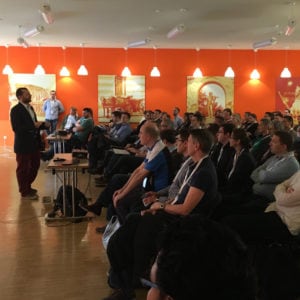
At SQLSaturday Vienna last month, James Rowland-Jones (SQLbits organizer, former MVP, consulting company founder, and now Microsoft principal program manager, which is a pretty big deal) said in his keynote speech (paraphrased):
“If you’re working with data, breadth is the new depth.”
And years ago, Buck Woody (legendary Microsoftie currently doing machine learning and data science) told me:
“In a mature market, be a specialist.
In an immature market, be a generalist.”
Both James and Buck are absolutely right.
We’ve all got stories of parents and grandparents who worked in a factory, spent their first year learning how to do a job, and then spent the rest of their 30-40 year career doing that exact same job, eventually retiring with a pension. Some of them even worked in IT – I knew a few folks who learned, worked, and retired, all working on the same mainframe.
Today in IT, everybody’s learning for a living, so I say:
Specialize in learning itself, but be a generalist about what you learn.
Even when you’ve found a tool you love, and you want to specialize in it, you need to understand the problem that you’re solving, and learn about other tools to solve that same pain.
I specialize in Microsoft SQL Server, which solves the business pain of, “How do I store and access my valuable data?”
To stay current, I need to spend, say, 3/4 of my time learning about SQL Server, but the remaining 1/4 about the pain itself, and other ways you can solve it. Don’t get me wrong, I’m by no means an expert in other database technologies – hell, I’m not even qualified to be a user of most other technologies, let alone an admin – but I want to know what’s going on in those markets. I want to know what developers are excited about, and why.
This lets you talk credibly with the business.
When a client’s executive or project manager wants to know what else is happening in the data market, I don’t look like a religious zealot, and I can have a calm, informed discussion about what makes MongoDB or Azure SQL Data Warehouse interesting.
I don’t invest a lot of my learning budget in that minority of my research – for example, I wouldn’t attend a NoSQL or analytics conference – but I invest my time by reading free materials online. I don’t look for database-specific reading sources – I start upstream by asking, “How are developers approaching data problems?”
I happen to find startup culture interesting, so I read Hacker News, but it’s not a great fit for everybody. It’s heavily focused on startups, not big enterprise developers or highly educated big data analyst types. You won’t find comparisons between, say, DB2, Oracle, and SQL Server there. But it’s a great place to start for startup news, and you don’t have to read it every day – just stick your head in there every now and then and see what’s happening outside of the traditional database world.
